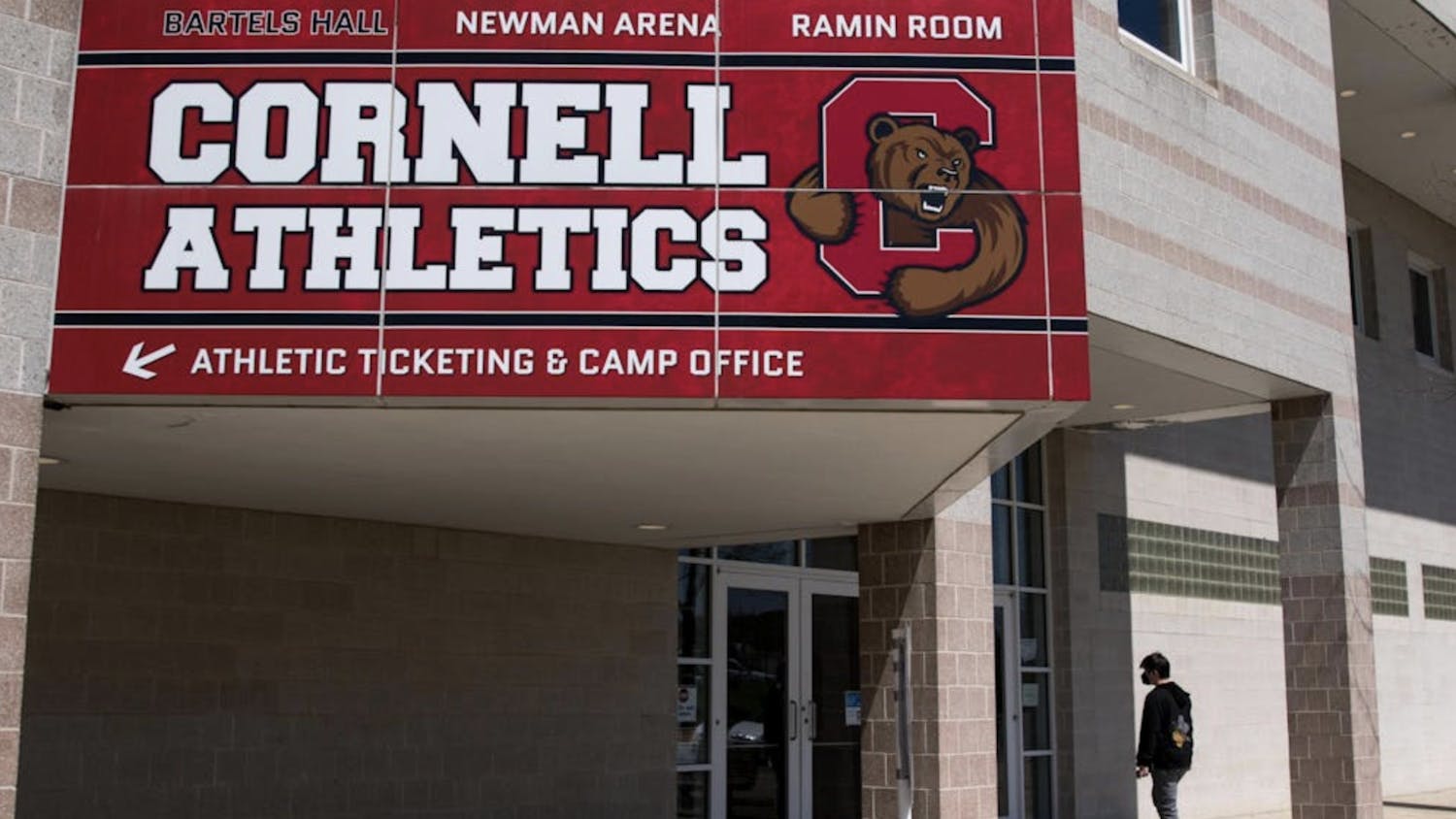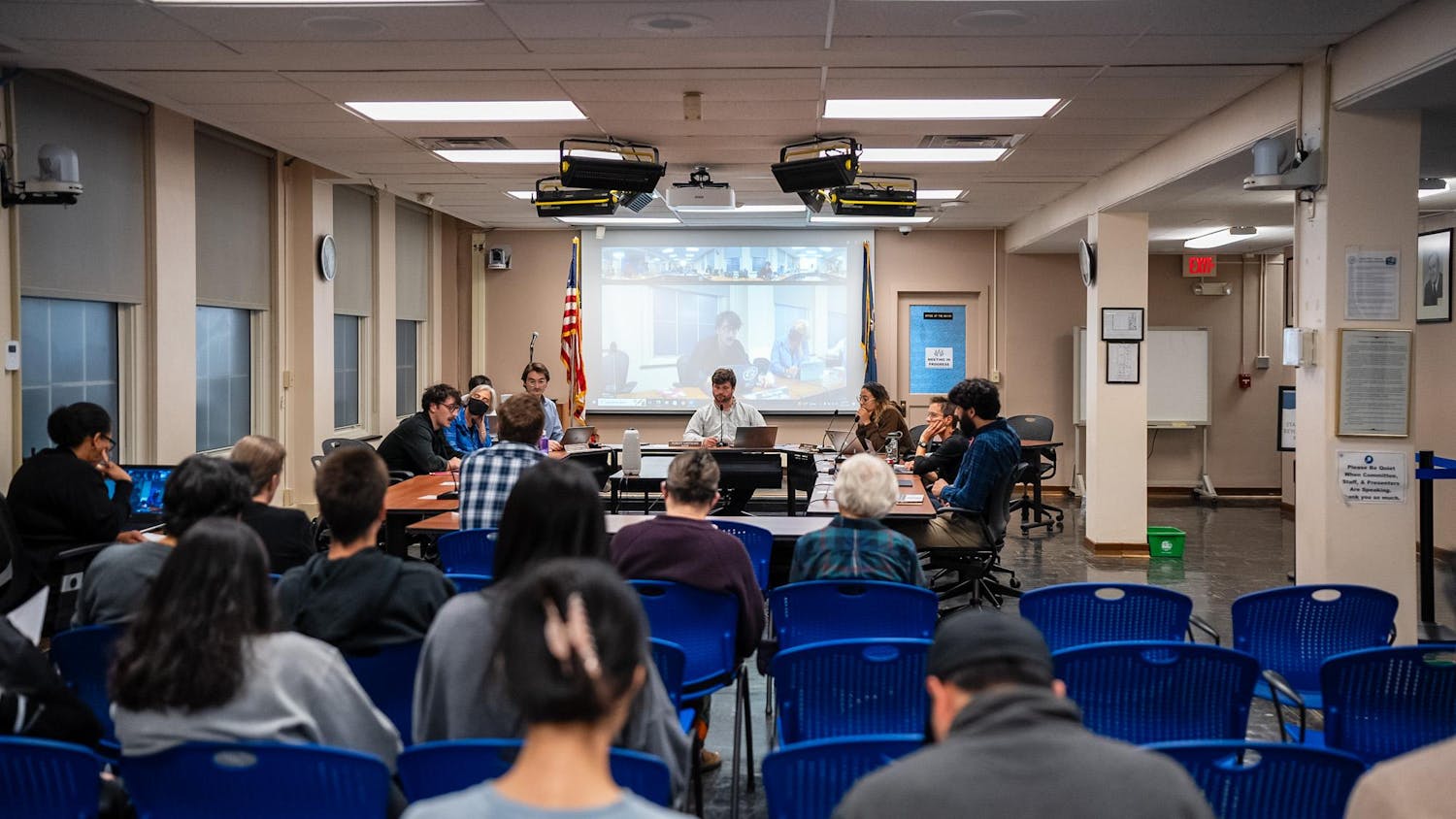In a presidential election campaign that has centered on the capability of each candidate to effect change, former senator John Edwards is not the foremost candidate in the eyes of Democratic voters.
According to the most recent Washington Post-ABC News Poll, Edwards trails Sen. Hillary Clinton (D-N.Y.) and Sen. Barack Obama (D-Ill.)in the candidate preferences of likely Democratic voters by 31 and 26 percentage points, respectively. The amount of national attention that Clinton and Obama have been receiving, along with their victories in early state caucuses and primaries, may be indicative that many Democratic voters would like to see a historical “first” take place in 2008: the election of a woman or African-American as president.
“It’s exciting to see a black man and a woman in the race, but some people are so wrapped up in this that they are forgetting that we need a Democrat who can win the general election without sacrificing our core liberal beliefs,” said Nate Baker ’11, director of Cornell Students for Edwards, a group that advocates for Edwards around campus.
Edwards has gained attention in this campaign by taking what some describe as a more progressive stance than either of his two major competitors. His positions are considered by many to be noticeably more liberal than those he formally advocated during the 2004 election cycle. While in Congress, Edwards voted to authorize military action against Iraq, and though he criticized President Bush’s handling of the war, he supported the administration’s rationale for maintaining a U.S. military presence there in 2004.
He has since apologized for his vote, calling it a “mistake,” and stated that he plans to gradually withdraw all American forces within the first 10 months of his presidency.
Another area in which Edwards has distinguished himself from Clinton and Obama is his emphasis on employment and domestic poverty. Edwards has oriented his entire campaign around the topic, describing poverty as “the great moral issue of our time.” He proposes to end poverty in the next 30 years by raising the minimum wage to $9.50, reversing President Bush’s tax cuts for the two wealthiest income tax brackets, creating a million housing vouchers for minority families living in low-income neighborhoods and implementing the recommendations of the National Academy of Science to redefine the federal poverty measure to include another 1 million people.
Edwards has also suggested that investing in and improving public schools will increase access to better-paying jobs for young people in America. If elected president, he has pledged to institute a “College for Everyone” program that would cover the cost of tuition, books and fees for students’ first year at public colleges in return for 10 hours of work per week.
“It’s hard to imagine the hardships of this nation when you’re a privileged kid at an institution like Cornell. It’s hard to imagine that 37 million Americans live in poverty or that the top one percent of Americans own more than the bottom 40 percent combined,” said Baker.
The son of a textile mill worker, Edwards portrays himself on the campaign trial as a champion of America’s working and middle classes. In his “Two Americas” stump speech, Edwards highlighted the disparity between what he describes as the “America that pays the taxes” and the “America that gets the tax breaks.”
His speech caused many political commentators to label Edwards a populist; one guest on Fox News Network’s The O’Reilly Factor famously referred to Edwards as “Huey Long with a Madison Avenue makeover.”
Some credit Edwards’s second place finish above frontrunner Hillary Clinton in the Iowa state caucus earlier this month to his working class ties and grassroots campaign strategy. He has strong support from unions due to his support for strengthening the labor laws and protecting the ability of workers to organize.
However, Edwards captured only four percent of the vote in the Nevada caucus, a state with a proportionally large number of unionized workers. Baker suggested that Edwards’s poor performance in Nevada was due to the large disparity in funds raised between Edwards’s campaign and his Democratic opponents.
“The mistake that John Edwards made in Nevada was simply that he refused to take a dime from lobbyists and Political Action Committees,” Baker said.
Bill Imperiale ’11 stated that he admires Edwards for accepting public funding.
“The corrupting influence of the special interests is one of the reasons why so many young people today have become disillusioned with politics in general. Clinton and Obama could learn from him,” said Imperiale.
The next Democratic primary will be held tomorrow in South Carolina, the state where Edwards was born. However, political forecasters are predicting that the large percentage of black voters in South Carolina will give Obama a significant advantage.
“Edwards wants to become the kingmaker,” said Eronmonsele Elens-Eigbokhan ’09, director of Cornell Students for Obama.
Due to Democratic nomination procedures, a candidate who finishes in third place, while capturing 15 or more percent of the vote, is not eliminated and therefore could throw the support of his delegates to either of the other two candidates in a close contest.
“Edwards may drop out after South Carolina, or he could solidify that third place position,” he said.
Want to read about the Republican candidates? Click on the candidates name: Sen. John McCain (R-Ariz.), former Gov. Mike Huckabee, former Gov. Mitt Romney. For the Democratic candidates, click on their names above.
Eyes on the Primaries: Former Senator John Edwards
Reading time: about 5 minutes
Read More










